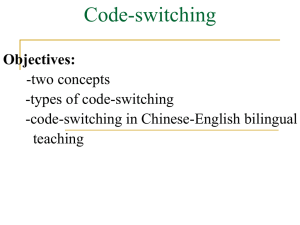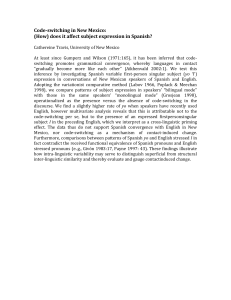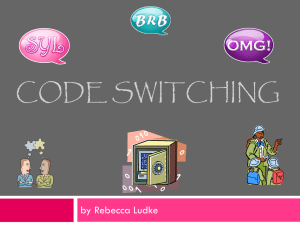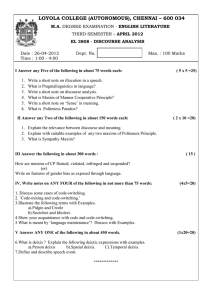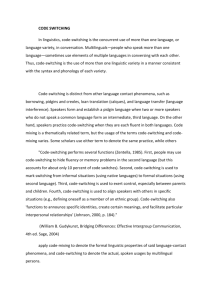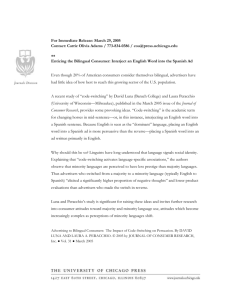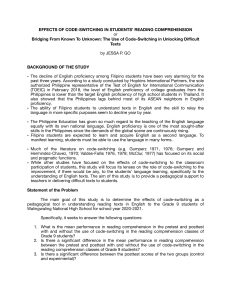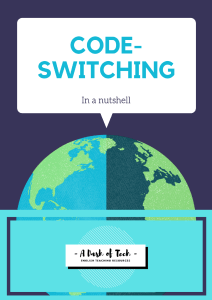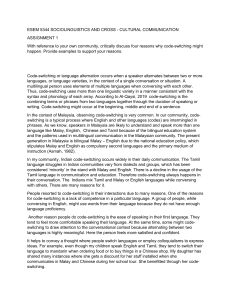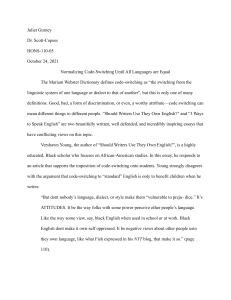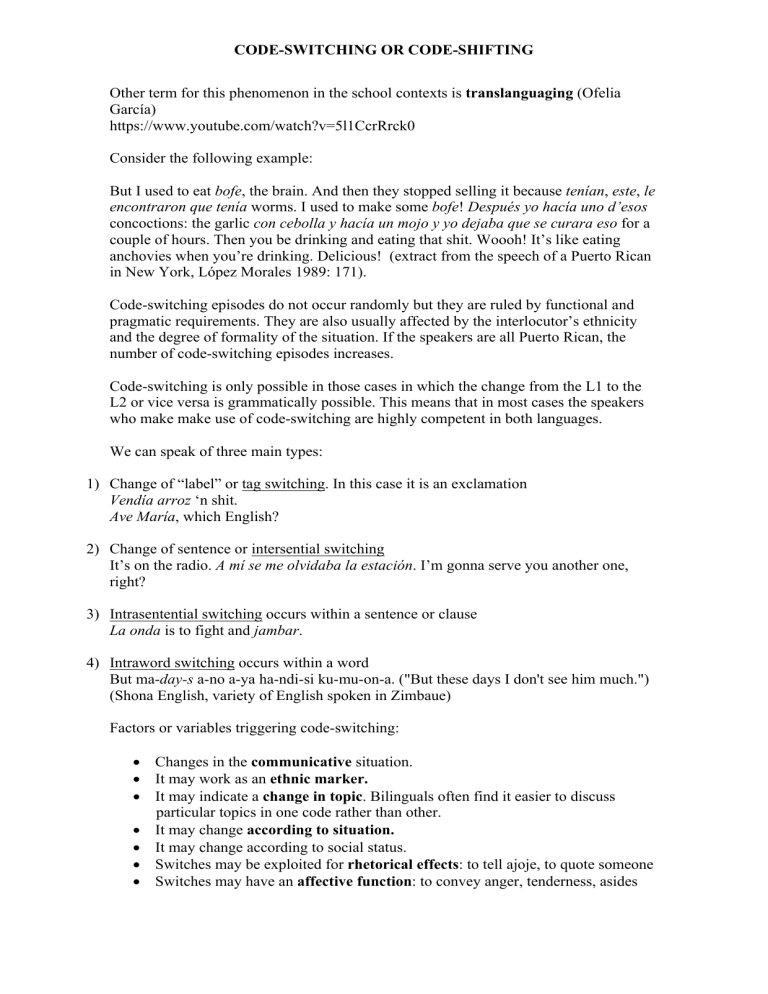
CODE-SWITCHING OR CODE-SHIFTING Other term for this phenomenon in the school contexts is translanguaging (Ofelia García) https://www.youtube.com/watch?v=5l1CcrRrck0 Consider the following example: But I used to eat bofe, the brain. And then they stopped selling it because tenían, este, le encontraron que tenía worms. I used to make some bofe! Después yo hacía uno d’esos concoctions: the garlic con cebolla y hacía un mojo y yo dejaba que se curara eso for a couple of hours. Then you be drinking and eating that shit. Woooh! It’s like eating anchovies when you’re drinking. Delicious! (extract from the speech of a Puerto Rican in New York, López Morales 1989: 171). Code-switching episodes do not occur randomly but they are ruled by functional and pragmatic requirements. They are also usually affected by the interlocutor’s ethnicity and the degree of formality of the situation. If the speakers are all Puerto Rican, the number of code-switching episodes increases. Code-switching is only possible in those cases in which the change from the L1 to the L2 or vice versa is grammatically possible. This means that in most cases the speakers who make make use of code-switching are highly competent in both languages. We can speak of three main types: 1) Change of “label” or tag switching. In this case it is an exclamation Vendía arroz ‘n shit. Ave María, which English? 2) Change of sentence or intersential switching It’s on the radio. A mí se me olvidaba la estación. I’m gonna serve you another one, right? 3) Intrasentential switching occurs within a sentence or clause La onda is to fight and jambar. 4) Intraword switching occurs within a word But ma-day-s a-no a-ya ha-ndi-si ku-mu-on-a. ("But these days I don't see him much.") (Shona English, variety of English spoken in Zimbaue) Factors or variables triggering code-switching: • Changes in the communicative situation. • It may work as an ethnic marker. • It may indicate a change in topic. Bilinguals often find it easier to discuss particular topics in one code rather than other. • It may change according to situation. • It may change according to social status. • Switches may be exploited for rhetorical effects: to tell ajoje, to quote someone • Switches may have an affective function: to convey anger, tenderness, asides
